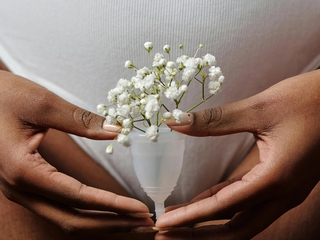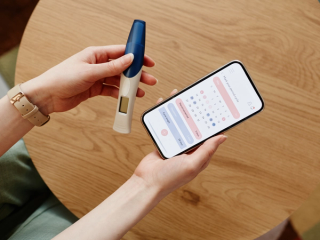
- Home
- Advice Hub
- Conception
- Fertility & Infertility
- Dealing With Failed Fertility Treatment: What’s Next?
Coping with failed fertility treatment: What’s next?
Coping with failed fertility treatment? Get support, treatment options, and tips on healing and supporting your partner through this tough journey.
Facing failed fertility treatment can be one of the most emotionally challenging experiences on the path to parenthood. Whether it's your first attempt or one of many, the heartbreak and uncertainty that follow can feel overwhelming. But you are not alone, and there are compassionate, supportive paths forward. This article aims to guide you through understanding what happened, how to cope emotionally, and what your next steps might be.
What are the common fertility treatments?
Before exploring what to do next, it's helpful to understand the various fertility treatments available. Each method has its own indications and success rates, depending on your unique situation.
Intrauterine Insemination (IUI)
Intrauterine Insemination involves placing prepared sperm directly into the uterus around the time of ovulation. IUI is often recommended for couples with unexplained infertility, mild male factor infertility, or cervical mucus issues. It's typically less invasive and more affordable than IVF.
In Vitro Fertilization (IVF)
IVF involves retrieving eggs from the ovaries, fertilizing them in a laboratory, and transferring the resulting embryos into the uterus. IVF is commonly used in cases of unexplained infertility, blocked fallopian tubes, male factor infertility, endometriosis, after other treatments have failed or if you have been trying to conceive naturally without success. Recent fertility trend figures from the Human Fertilisation and Embryology Authority state that in each primary school class there will be at least one child conceived through IVF. However, despite its success in many cases, IVF success rates remain low.
Understanding the emotional impact of failed fertility treatments
The emotional toll of infertility and failed treatments is often underestimated. Feelings of grief, loss, anger, and isolation are all normal, and recognising these emotions is the first step toward healing. It is very normal to feel a deep sense of loss at this time, and you may find that family and friends struggle to understand. You may need to educate your loved ones so they can fully appreciate all you are feeling.
The importance of normalising grief and disappointment
Grieving a failed fertility treatment is a deeply personal experience. It may feel like mourning the loss of a future you envisioned. Allow yourself to feel these emotions without judgment. Journaling, therapy, marking your loss in a way meaning for you, or simply acknowledging your sadness can be powerful steps forward.
Seeking Support and Connection
Talking to others who have gone through similar experiences can make a world of difference. Infertility support groups—both online and in person—offer a safe space to share your story, learn from others, and realise that you're not alone. Professional support can help you to understand your emotions and provide you with resilience to move forward after your loss, as well as helping you to consider your next steps.
Exploring your options
Failed fertility treatment doesn’t mean the end of your family-building journey. There are still many paths to parenthood and healing, and it can be reassuring to know that and to understand your options.
Considering alternative treatments
Some individuals find benefit from holistic or complementary approaches, such as acupuncture, nutritional therapy, or yoga. It is important to be aware that these alternative treatments carry little or no evidence to support their, use when it comes to conceiving. However, these methods may help reduce stress and improve physical well-being alongside conventional treatments or going back to trying naturally. Complementary and alternative treatments can play a significant part in your overall strategy to conception.
Egg, sperm or embryo donation
When one partner, or both, face significant fertility challenges, egg, sperm or embryo donation may be recommended. Donor gametes can offer a path to pregnancy that might not be possible with the couple's own eggs or sperm, and they can be used in conjunction with IVF. The Donor Conception Network is a good place to start if you are considering this option, along with Paths to ParentHub.
The path of adoption
Adoption is a meaningful way to build a family and provide a loving home to a child in need. It comes with its own set of emotional and legal processes, but for many, it offers profound fulfilment and healing. If adoption is something you wish to explore, talk to your doctor or local authority for further information. You may also find the Adoption UK charity provides helpful advice and support.
Other paths to parenthood
Other routes, such as surrogacy or fostering, are also viable options. Surrogacy can allow a biological connection when carrying a pregnancy isn’t possible, while fostering provides an opportunity to support and care for children in need, with potential for adoption. If you are considering these options, it’s important to get as informed as you can, especially when it comes to surrogacy where it is prudent to seek legal advice to ensure the process goes smoothly. You can find more information on surrogacy on TwoDadsUK and on SurrogacyUK.
Finding hope and healing
Resilience doesn’t mean pushing away grief—it means learning to live with it while finding joy again. Practicing self-care, celebrating small victories, and setting new goals can slowly help rebuild hope. Everyone's timeline for healing is different, and there is no "right way" to move forward.
Additional Help and Support
Navigating infertility can be isolating, but numerous communities and organisations offer support:
- Fertility Network UK – Provides support and information for individuals and couples.
- Fertility Action UK– The UK’s newest fertility charity
- Your clinic's counsellor or mental health professional
- Online infertility communities – Search hashtags like #TTC (trying to conceive) for social media support.
FAQs: Failed treatments
Repeated IVF failure can be devastating. It may be helpful to request a full medical review, including embryo quality, uterine health, immune factors, and genetic testing. A second opinion from a different fertility specialist or moving clinics may also provide new insights.
Next steps might include adjusting your IVF protocol, asking your clinic what they could do differently or of there are any further investigations or treatments you could try, exploring donor options, or integrating lifestyle changes. Nutritional improvements, stress reduction, and addressing underlying health issues can all support future attempts.
Try: “I’m so sorry you’re going through this. I’m here for you.” Avoid clichés or unsolicited advice unless asked. Just being present and listening is often the best support. Consider what you could physically do to support your loved one. From cooking a meal and taking it round to offering to take your friend out for a coffee or lunch can be ways to show your support.
Final thoughts
Experiencing a failed fertility treatment can feel like a door closing, but it doesn’t mean your journey ends here. There is still plan b,c and, d……Whether you choose to try again, explore different family-building options, or take time to heal, there is support and hope available. Be kind to yourself and take each day as it comes.












